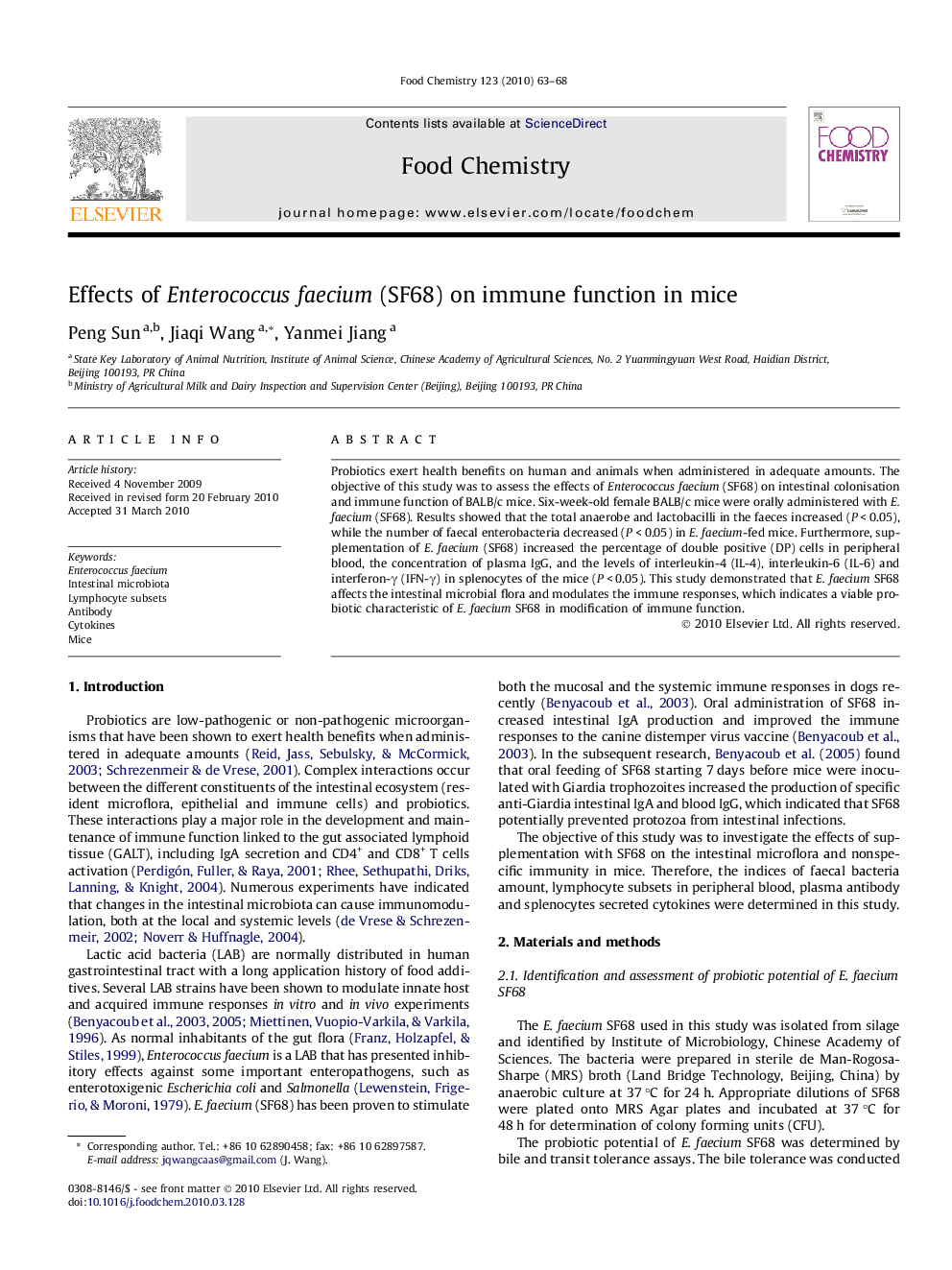| Article ID | Journal | Published Year | Pages | File Type |
|---|---|---|---|---|
| 1184998 | Food Chemistry | 2010 | 6 Pages |
Probiotics exert health benefits on human and animals when administered in adequate amounts. The objective of this study was to assess the effects of Enterococcus faecium (SF68) on intestinal colonisation and immune function of BALB/c mice. Six-week-old female BALB/c mice were orally administered with E. faecium (SF68). Results showed that the total anaerobe and lactobacilli in the faeces increased (P < 0.05), while the number of faecal enterobacteria decreased (P < 0.05) in E. faecium-fed mice. Furthermore, supplementation of E. faecium (SF68) increased the percentage of double positive (DP) cells in peripheral blood, the concentration of plasma IgG, and the levels of interleukin-4 (IL-4), interleukin-6 (IL-6) and interferon-γ (IFN-γ) in splenocytes of the mice (P < 0.05). This study demonstrated that E. faecium SF68 affects the intestinal microbial flora and modulates the immune responses, which indicates a viable probiotic characteristic of E. faecium SF68 in modification of immune function.
